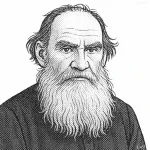“A subject for a great poet would be God’s boredom after the seventh day of creation.”

- October 15, 1844 – August 25, 1900
- Born in Germany
- Philosopher, poet, and classical philologist
table of contents
Quote
“A subject for a great poet would be God’s boredom after the seventh day of creation.”
Explanation
In this quote, Friedrich Nietzsche presents a thought-provoking idea about the nature of existence and the idea of creation. He imagines a scenario where, after completing the grand task of creating the world, even God would face a sense of boredom. The creation of the world, Nietzsche suggests, would bring about a sense of emptiness or futility once the task is completed, as if there is nothing left to do after such a monumental achievement. The idea of God’s boredom after the act of creation points to Nietzsche’s deeper critique of the concept of purpose or meaning that comes from an external or divine source. If even the most powerful being experiences boredom after creating everything, this hints at the lack of inherent meaning in the universe, suggesting that meaning must be created by individuals through their own will and actions, rather than being given from a divine source.
Historically, Nietzsche was critical of religious and metaphysical explanations of the world, particularly the belief that life had predetermined meaning or a higher purpose dictated by a divine force. He believed that life’s meaning must be created by each individual, not given or imposed from above. The quote serves as a metaphor for Nietzsche’s perspective that creation or the act of existence itself, without an ongoing challenge or goal, can lead to boredom and emptiness—and that it is the human spirit and will to power that give life its meaning.
In modern contexts, this quote could be applied to reflect the human experience of boredom or the search for meaning in an increasingly secular, technological, and materialistic world. Nietzsche’s idea suggests that without challenges, struggles, or goals to pursue, both individuals and societies can fall into a state of existential numbness or lack of purpose. This echoes the modern phenomenon of existential boredom—a sense that life, once all material needs are fulfilled, can feel empty unless we create our own meaning and purpose. Nietzsche encourages us to embrace the struggle and affirm life, suggesting that meaning is not something given to us, but something we must actively create.
Would you like to share your impressions or related stories about this quote in the comments section?


